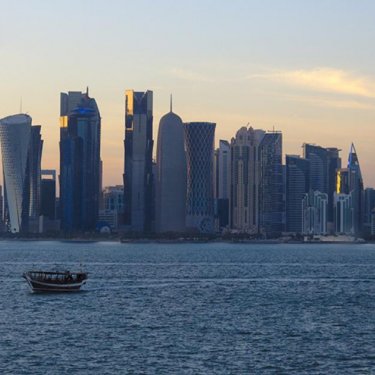Change to “fake news” law poses new threat to Qatar’s journalists

Reporters Without Borders (RSF) condemns Qatar’s decision to increase the maximum penalty for “false news” to five years in prison. This poses an additional threat to the country’s journalists, RSF says, calling on Qatar to comply with the international treaties it has signed.
The justice ministry announced the increased penalty on 19 January. The ministry said it was contained in an amendment to an existing section of the Qatari criminal code that was being published the same day in the official gazette and would take effect immediately.
The new article says a sentence of up to five years in prison can be passed on “whoever broadcasts, or publishes or re-publishes rumours or false news or statements or provocative propaganda, inside or outside the country, with the intention of harming national interests, provoking public opinion, or prejudicing the social order or public order of the state.”
The article could have serious consequences for journalists, who are clearly the most likely targets of the phrase “whoever broadcasts...” It does not define what constitutes “false news” and does not say who is empowered to decide. The article violates the public’s right to information because any important news report is potentially capable of “provoking public opinion,” depending on how it is received and how the public reacts.
“Instead of repealing the existing law, which already endangered the media, Qatar has chosen to make it even more repressive by means of vague wording,” said Sabrina Bennoui, the head of RSF’s Middle East desk. “It shows that, behind a facade of being committed to international treaties, Qatar is not interested in reforms in favour of press freedom. Qatar must implement the press freedom principles it accepted when it ratified in the Arab Human Rights Charter and the International Covenant on Civil and Political Rights.”
Two days before the justice ministry announced the amendment, the Qatari newspaper Al-Rayareported that it was coming, citing an unofficial sources. Although the newspaper’s report proved to be correct, it was forced to delete it from its website and issue an apology for causing a “controversy” by publishing “without confirmation by the competent authorities.”
In theory, Qatar’s constitution guarantees freedom of expression and opinion. In 2013, Qatar ratified the Arab Human Rights Charter, which the Arab League adopted in 2008, and in 2018, it ratified the International Covenant on Civil and Political Rights.Qatari law nonetheless prohibits “insulting” the emir, “defaming” religion and “inciting” the government’s overthrow.
Qatar is ranked 128th out of 180 countries in RSF’s 2019 World Press Freedom Index.



